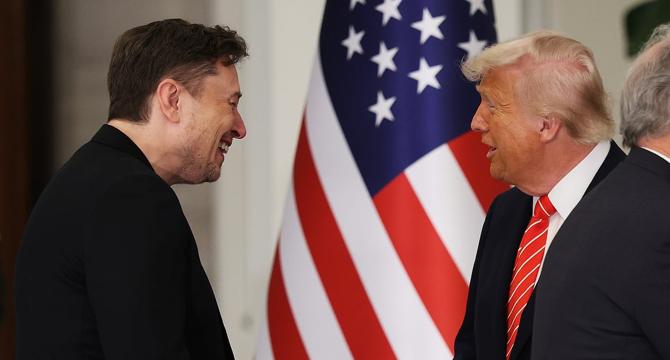Bloomberg Quint
1d
137

Image Credit: Bloomberg Quint
Musk And Tech Bros Are Facing The End Of The ‘Technipolar Moment’
- The tech industry, particularly Elon Musk, is facing challenges in influencing economic agendas, marking the end of the 'technipolar moment'.
- Despite significant contributions to Trump's campaigns, Musk's attempt to affect economic policies, including tariffs, has largely failed.
- Musk's efforts to cut government spending and influence trade policies have not yielded desired results, leading to losses in net worth and stock value.
- The tech industry, including companies like Amazon, is struggling with Trump's tariff policies and restrictions on hiring skilled foreign workers.
- Trump's anti-immigration stance and budget cuts to research institutions are disrupting the tech industry's operations and innovation.
- There is a growing anti-tech consensus in government, with cases against Meta and Google showing bipartisan concerns about tech giants' dominance.
- Trump's economic focus on manufacturing over tech poses challenges for the tech industry, despite initial expectations of favorable policies under his administration.
- The lack of significant influence from the tech industry in shaping economic policies reflects a shift towards populism and a different class base under Trump.
- Trump's presidency is characterized by his own interests rather than serving specific business or tech interests, creating uncertainties for the tech sector.
- The tech industry's hopes for relaxed antitrust measures under Trump did not materialize, indicating a shift towards greater scrutiny and regulation of big tech.
Read Full Article
8 Likes
For uninterrupted reading, download the app